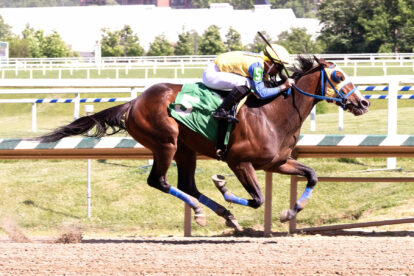TL;DR: yes, first-timers do triumph. If we’re going to talk in absolute terms, horses that have never raced before do win, sometimes. And this also applies to significant races, those with true prestige and fan interest.
Of course, there’s a little more to it than luck or the base physical attributes of a horse. If you want to find a winner amongst first-timers, several factors can still give you an edge over a simple random bet.
Full Card Plays Available Now
There’s a reason we’re the #1 trusted source for premium racing picks & info.
Your Issue: Lack of Historical Data
For those of you who like to bet on horses, data is paramount. Gut feeling, liking the name of the horse, picking based on odds alone, all of these can give you a win every once in a while, but you’ll more likely end up with a net loss over time.
Long-term successful gamblers put data on a pedestal. In particular, historical data. You want to know how horses have performed in races over time, and how they may be trending one way or another, this is the key information you need before placing a bet.
The problem with First Time Out (FTO) horses is that these data simply do not exist. This is the horse’s first race, so what do you do? First, concede that FTO horses will likely not win the race.
If you’re looking at a flat turf, you’re looking at a win rate of around 8%. In terms of A/E stats, it’s 0.83, and the loss approximates 29%. Of course, some factors influence the likelihood of a victory, which we will do a deep dive into below. Let’s take a look.
Important Factors
If we look at the statistics, blindly betting on an FTO horse will likely result in a loss. However, there are ways to get value in a bet, should you be interested in horse racing from this view:
Age and Gender
For the Melbourne Cup, for example, age and gender really matter. The race is 3200m, which is a challenging course for younger horses. Most will tire, even after a strong start, which means experience tends to count for a lot.
Just look at the current odds: Vauban and Warmonger are currently favourites, sitting at 11/1. Vauban is getting on a bit at six, with Warmonger at the perfect age of four. Most winners are either four/five years old, but plenty have also won with six candles behind their name.
Gender, in this case, also matters. In almost all races, male horses will win the Melbourne Cup. In fact, in recent years, only males have been entered into the race proper.
Trainer + Owner
Some trainers, even with years of experience, simply do not do well when it comes to FTO runners. So the advice is not to look at a trainer’s overall performance, as this can include data on experienced horses.
The owner of the horse can also give you a little bit of guidance on how likely the FTO candidate is to win. Some owners will focus on simply giving FTO horses experience, while others are looking for a win from the very start.
Physical Attributes
Of course, the physical attributes of a horse are paramount (but not the sole factor). This is what every trainer, owner, and jockey looks at before committing to a horse. You can conclude a lot based on genetics, which is why breeders have such a crucial role in horse racing.
Thoroughbreds with impeccable bloodlines will generally result in a fantastic specimen, with a strong cardiovascular system, great stamina, and a high top speed. The ability to maintain high speeds over a flat racing surface is one of the most important factors to look for.
Training
Workout data is crucial when it comes to FTO horses. According to a recent study by US Racing, looking at what a horse has done the week before the race makes all the difference.
For example, when studying over 10,000 races, Derek Simon found that a horse that has had a workout within the past week will perform far better. In addition, a workout that lasts six furlongs (or more) will outperform those below this number.
But it’s the combination of these data that truly makes the difference. For horses that do at least 6 furlongs, have their last workout within the last week, and are not slow on their last workout, the net return on a $2 bet is, on average, $2.41 or greater (depending on claiming vs. non-claiming races).
Hard Data Still Matters
We left the training data study last on purpose because the emphasis should be kept on data. It is still the leading factor, even with FTO horses that do not have any actual racing data available.
Ideally, you should study all factors as specified in this guide. Do not rely on rumours you find online, a supposed friend of the trainer, or any other information that is not concrete.


